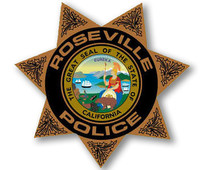
By: Rob Baquera, Public Information Officer, Roseville Police Department
It can happen to anyone. Dozens of children die in hot cars every year.
According to National Safety Council (NSC), on average, 37 kids die in hot cars every year in the United States. Incidents peak between Memorial Day and Labor Day, when between two and three kids die each week.
In the hustle and bustle of everyday life, parents often are stressed. Often, tragedies occur when schedules and routines are broken.
In April 2017, a 1-year-old boy died after being left in a pickup truck. At that time, the temperature in Vestavia, AL, was just 68 degrees. What many don't know is cars and trucks heat up rapidly even on milder days and no matter the time of year.
The temperature inside a vehicle can rise by nearly 20 degrees in 10 minutes. Heatstroke occurs when a person's core body temperature rises to 104 degrees, according to research from Mayo Clinic. A temperature of 107 degrees could result in irreversible organ damage or even death.
Young children are at risk because their bodies heat up three to five times faster than an adult's, according to a journal report from the American Academy of Pediatrics.
What you can do.
To prevent tragedies, Safe Kids Worldwide offers the following recommendations:
- Never leave your child alone in a car, not even for a minute
- Keep your car locked when you are not in it so kids don't gain access
- Create reminders by putting something in the back seat next to your child, such as a briefcase, purse, cell phone or your left shoe
- If you see a child alone in a car, call 911
- Set a calendar reminder on your electronic device to make sure you dropped your child off at daycare; develop a plan so you will be alerted if your child is late or a no-show
Technology can be part of the solution.
The National Safety Council (NSC) backs efforts to use technology to prevent children from being forgotten in vehicles. Without offering an endorsement of any vehicle or product, NSC provides the following information to help parents and guardians protect their most precious cargo:
Rear Seat Reminder: If a rear door is opened and closed within 10 minutes before the vehicle is started, or is opened and closed while the vehicle is running, five chimes will sound and a message will display on the instrument panel when the vehicle shuts off to remind the driver to check the rear seat. This technology is available on several GM vehicles.
Car Seat Technology: This technology generates a series of tones activated through a "smart" chest clip and wireless receiver to remind the driver that a child is in the rear seat within two seconds of turning off the vehicle.


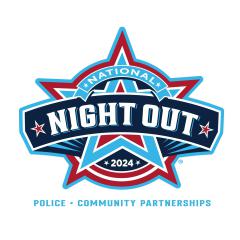
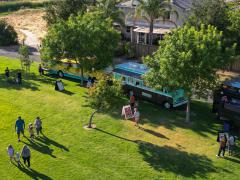
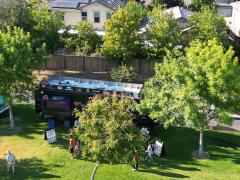
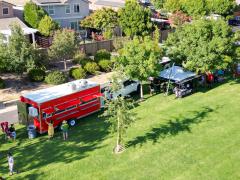
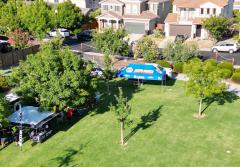
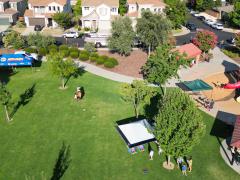
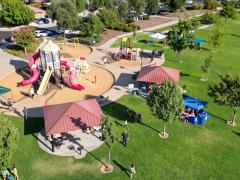
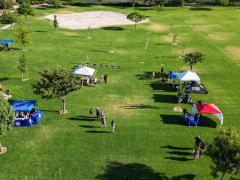
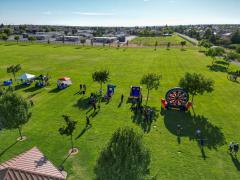
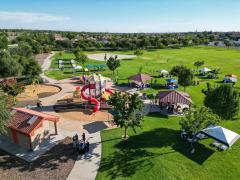
.jpg.296c4f9b814e93c3acee89acaac1d7e9.jpg)
.jpg.6b3ebaff1fd0e045cd8de51e87317c8a.jpg)
.jpg.1b55b3b439437918b8739148ddbf4171.jpg)
.jpg.793734edba13fb894471c2d86963beb0.jpg)
.jpg.a0deeb4f8c2ef2b5286ee415aa5bdef3.jpg)
.jpg.8f001df19b1cc4d522ddab16415656f3.jpg)
.jpg.607ba85a641473a3dce74f1e5c9ce1b3.jpg)
.jpg.e63821702a8055dc3839a87c52bbf86c.jpg)
.jpg.2149677f8044a79c93b9ad341cf1f2dd.jpg)
.jpg.2868d920626bba08a85a1aaed5391db6.jpg)
.jpg.b7e577504d33038e70c995c1cb0c3255.jpg)
.jpg.b06c4675de019177f8752c273ae3040d.jpg)
.jpg.13af6578261edcc098d86ede95e92d73.jpg)
.jpg.0a2155a39768c3c28f68d3cf20a6fbdb.jpg)
.jpg.b545a869278acaf5d9071e83cafb2378.jpg)
.jpg.2bc17dc7afb82ff85504e86ea3386f77.jpg)
.jpg.579b15c25b166b4db5b5837f5b425a40.jpg)
.jpg.56171e64df78f4aaed217a517c4bac59.jpg)
.jpg.8c548c5ab2e6f7a9813fa015857ad46f.jpg)
.jpg.ae7c2c1b1dd993e86dddae4a73651270.jpg)
.jpg.c3bf0d7fb41c08662a14de678b47ebb0.jpg)
.jpg.adc8fdbe54ede1d4ea166414870b6268.jpg)
.jpg.976b6d203b584bb3b95e72037ee7098a.jpg)
.jpg.75e5c92d60da119ec2bf3fde2b8efbe8.jpg)
.jpg.4348ef2ca3197a18004ededdeaa4e41b.jpg)
.jpg.74fdfe3d9fb982c6e29708f5ab219029.jpg)
.jpg.fea2c3c57714b3c4951fe7489592ee91.jpg)
.jpg.c09caa08007503b1d95eb68328d749ec.jpg)
.jpg.c4b4ea703eabe1f4d50dff2f05de700f.jpg)
.jpg.10e880365d144e5975bb69ef1201dfa0.jpg)
.jpg.46f7f8591acb1a18675bb82bb1a3d2ab.jpg)
.jpg.cbca1932c250203d4fb308e28a13258e.jpg)
.jpg.f1ca40f61b759b677e52e0e11655e271.jpg)
.jpg.1942a122c357e8307f1445ab8bb3bb6d.jpg)
.jpg.218a11559332d643e4964343378e4291.jpg)
.jpg.62287d46fedd6af165df9e335374bf5d.jpg)
.jpg.936bd69df0a5d4cf1899a38d4e766b45.jpg)
.jpg.00d9e487097a7111c1758523ba09550f.jpg)
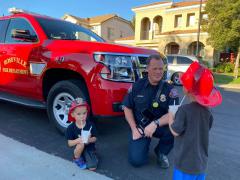



Recommended Comments
There are no comments to display.
Join the conversation
You can post now and register later. If you have an account, sign in now to post with your account.